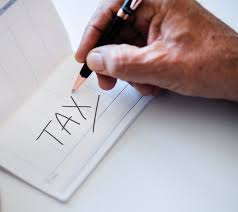Getting Away with Tax Fraud Charges: Tips and Tricks
Tax fraud by any means is an act that can land a taxpayer in serious financial trouble. Tax fraud basically means cheating the government in an effort to intentionally evade paying the full tax liability. Common examples of tax fraud can include, but aren’t limited to: failing to file all kinds of tax returns. Not filing a check or ledger showing payments on income tax. Giving false information on a tax return.
In the United States, it is against the law to avoid paying taxes. Criminal tax fraud includes many different ways to commit tax fraud, including, misrepresentation about income, non reporting of profits, using a misleading tax code, using a tax shield, and making a false tax declaration. The penalties for criminal tax fraud can include jail time, fines, and in some cases, even death sentences. The IRS, which is the agency that punishes criminal tax fraud, has made some very stiff tax fraud penalties.
People who engage in tax fraud face serious criminal charges. One person may try to pay taxes owed to the government by using a business scheme. Another may intentionally fails to file a return to avoid tax owed. A person may also intentionally misidentify income or assets to avoid paying taxes owed. In any of these cases, if convicted, the person faces serious tax penalties.
There are other tax frauds that fall under criminal tax charges, such as tax preparer fraud. When a tax preparer does not provide services that are required by the Internal Revenue Service, such as preparing federal tax forms, the tax preparer commits a criminal tax fraud offense. criminally inclined tax preparers may also misrepresent information on tax forms or financial statements. With this fraud, the preparer obtains money from the government and runs up huge tax debts.
Another criminal tax fraud offense includes fraudulent billing practices. This includes using incorrect data in a tax filing or payroll preparation. Using incorrect information causes incorrect calculations and can lead to criminal investigation. This is particularly prevalent in cases involving federal tax fraud and payroll tax fraud. Thus, you need to hire a tax fraud lawyer to handle the case.
In most cases, there are stiff penalties that apply to tax fraud. The most severe penalties include jail time, fines, and in extreme cases, the death penalty. Penalties for using incorrect information during filing and payroll preparation can be very high. Many states also have laws that allow criminal penalty for using false information during income tax returns and payroll tax fraud.
 People may also face serious criminal investigation and prosecution if they willfully attempt to defraud the government. This includes situations where an individual or business purposely misquotes information on their tax forms or attempts to make their tax return inaccurate. When this happens, the person faces serious charges including aggravated fraud. This means that the person committed the crime willfully, deliberately, and reckless. Even when they successfully defraud the government, people who commit tax fraud face criminal penalties.
People may also face serious criminal investigation and prosecution if they willfully attempt to defraud the government. This includes situations where an individual or business purposely misquotes information on their tax forms or attempts to make their tax return inaccurate. When this happens, the person faces serious charges including aggravated fraud. This means that the person committed the crime willfully, deliberately, and reckless. Even when they successfully defraud the government, people who commit tax fraud face criminal penalties.
In order to protect against tax fraud, it is important that individuals take the appropriate actions when they become aware that they could be a victim. These include avoiding circumstances that would make them liable. Individuals should avoid making their taxes harder to pay by not claiming deductions and exemptions. They should also avoid intentionally misquoting or purposefully under reporting their income on their tax return. If someone is questioned about their tax status, they should only answer honestly and provide proper documentation.
By knowing how to avoid being a victim of tax fraud, individuals can avoid paying higher taxes. However, there are many circumstances that make it easier for someone to commit tax fraud. For example, some individuals may be more likely to commit tax fraud if they have special tax benefits that they are not supposed to receive. Others may also commit tax fraud if they work with a tax preparation company that they know will illegally change tax forms or adjust deductions that they are legally entitled to. By looking into all of these different circumstances, it becomes easier to prevent oneself from becoming a victim.
Tax fraud occurs in other states as well. Some tax fraud occurs when a tax preparer operates out of a residence,  especially if that person is misrepresenting their residence state when actually working out of another state. Taxpayers can also be charged criminally in other states if they knowingly file false information on their federal tax return, which can lead to prison time. These types of cases can be very complex and often require the expertise of a tax fraud attorney.
especially if that person is misrepresenting their residence state when actually working out of another state. Taxpayers can also be charged criminally in other states if they knowingly file false information on their federal tax return, which can lead to prison time. These types of cases can be very complex and often require the expertise of a tax fraud attorney.
Even though a tax fraud attorney is very important, tax fraud attorneys are not required by law to provide legal advice to the taxpayer. They are only allowed to provide assistance and guidance to the taxpayer. If you have been charged with a tax fraud case, you should seek the advice of a tax fraud attorney as soon as possible. Click here to get a free consultation with Virginia tax attorney.